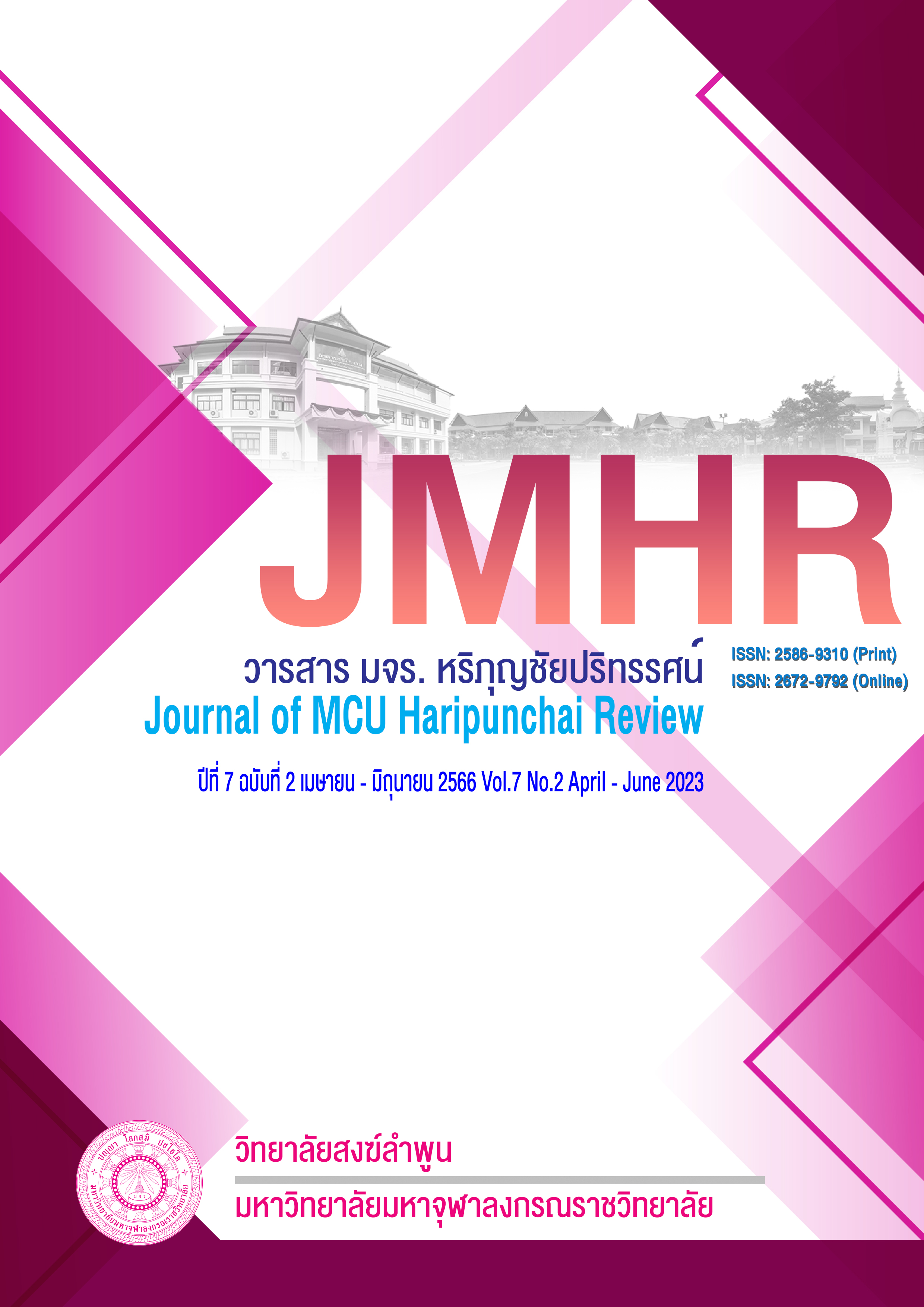Sustainable Cultural Tourism After Covid-19 Pandemic
Main Article Content
Abstract
Tourism is one of the major incomes of Thailand. Covid-19 Pandemic has been affected the tourism of Thailand a lot. When the pandemic is getting better, Thailand’s public and private sectors see an opportunity to make incomes by opening the country for tourists again. While this environment and situation are recovering, a cultural tourism is getting popular in people of all ages including teenagers who interest to see a community’s life of a rural area, or adults who interest to see various religious places such as praying in 9 different Buddhist temples. Therefore, the private sector should implement a sustainable cultural tourism plan in order to prevent the environment within the community from deteriorating again because it will have a negative effect to communities’ cultural capital. In addition, both public and private sectors should implement the plan based on four sustainable tourism principles including 1. Considering the capacity of the resource, 2. Awareness of the impact on tourism resources, 3. Participation of a community’s members, and 4. Balance of economic, society, and sustainable environmental conservation. This principle exists in order to promote cultural capital so that it does not harm cultural capital. Cultural funds can be divided into two types: tangible and intangible cultural capital. It also mentions the management of disease prevention and control after the COVID-19 circumstances. According to the Communicable Diseases Act B.E. 2015, such as surveillance of the epidemic, Limiting the numeral of the customer using the service, social distancing, and requesting cooperation from the regional public health authorities.
Article Details

This work is licensed under a Creative Commons Attribution-NonCommercial-NoDerivatives 4.0 International License.
References
กระทรวงการท่องเที่ยวและกีฬา.(2558). การท่องเที่ยวแบบยั่งยืน. กรุงเทพฯ
บุญเลิศ จิตตั้งวัฒนา, (2548). การพัฒนาการท่องเที่ยวแบบยั่งยืน. กรุงเทพฯ, แพรส แอนด์ ดีไซด์ จํากัด
พจนา สวนศรี (2556). คู่มือมาตราฐานการท่องเที่ยวโดยชุมชน. สถาบันการท่องเที่ยวโดยชุมชน มหาวิทยาลัย
พายัพ จังหวัดเชียงใหม่. หจก.วนิดาการพิมพ์.
ภูวดล บัวบางพลู. (2651). แนวทางการจัดการการท่องเที่ยวเชิงนิเวศอย่างยั่งยืน อุทยานแห่งชาติเขาคิชฌกูฏ จังหวัดจันทบุรี.วารสารวิจัยรำไพพรรณี, ปีที่ 12 เล่มที่ 2.
รุ้งนภา ยรรยงเกษมสุข. (2557). มโนทัศน์ชนชั้นและทุนของ ปิแอร์ บูร์ดิเออ. วารสารเศรษฐศาสตร์การเมืองบูรพา, 2(1), 29–44.
แสงอรุณ กนกพงศ์ชัย (2565). มรดกทางวัฒนธรรมเพื่อการท่องเที่ยวอย่างยั่งยืนหลังวิกฤติโควิท-๑๙
สำนักงานปลัดกระทรวงท่องเที่ยวและกีฬา. (2563). รายงานสรุปจัดทำบัญชีประชาชาติด้านการท่องเที่ยว พ.ศ. 2563 Tourism Satallite Account : TSA.
Throsby, C.D. (2001). Economics and culture. Cambridge: Cambridge University Press.


